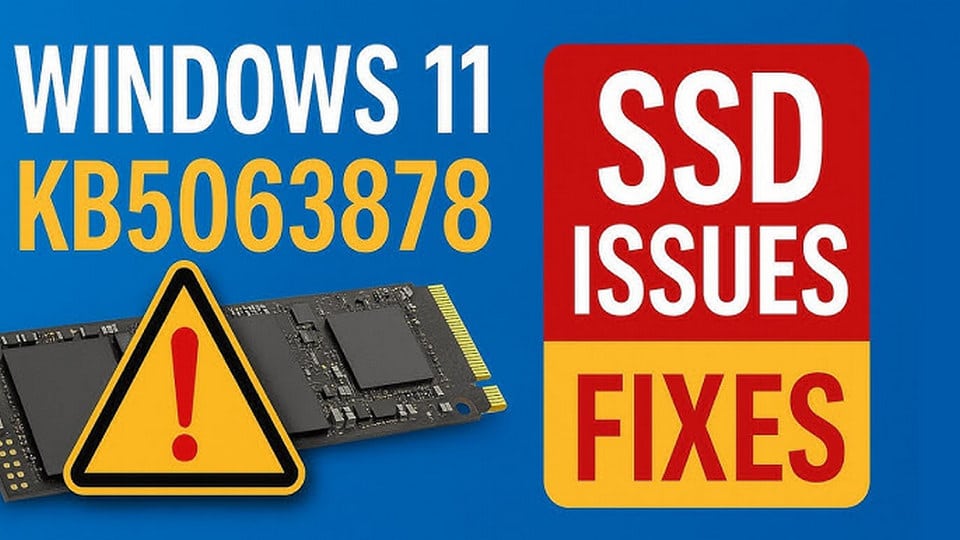Let’s break down what’s happening, who’s affected, and what you should do right now.
What’s Actually Going On?
These issues only seem to be happening when writing a lot of data, for example, installing large games or software, and copying thousands of pictures. After installing KB5063878, users started noticing:
- Their SSD disappeared mid-transfer
- Windows crashed during large file operations (50GB+)
- If you have two drives, File Explorer or Disk Manager couldn’t see the secondary drive
- Data corruption or failed installs (especially for large games)
Even more frustrating? The SSD usually reappears after a reboot, making it hard to figure out what’s really causing the issue. Most people assumed RAM problems or overheating. Nope – it’s this update.
And if it didn’t come back? Tough luck!
The issue mainly hits drives using the Phison PS5012-E12 controller (common in many SSDs), but a few other models also showed problems. Some drives do recover after reboot, but not always. Others lose everything.
When we fix computers, we typically use more expensive Samsung or Crucial drives. None of the models we use have been reported so far, but you never know!
Why Is This Dangerous?
Because when your SSD disappears mid-write, you risk:
- Data corruption
- File system damage
- Losing installs, save data, or worse – your whole system
- Thinking it’s your other hardware and wasting hours troubleshooting
What to Do Right Now
- Go to Settings > Update & Security > Windows Update > View Update History
- Click Uninstall Updates
- Find KB5063878 (or KB5062660) and uninstall it.
- Once uninstalled, pause updates temporarily to prevent it from coming back.
Ironically, Microsoft says “uninstalling updates may put your PC at risk”. It might – updates often patch security holes. You just have to accept that no matter what you do, there is always risk involved.
After you do that, make a full computer backup. Whether you’ve had issues or not, now’s the time. Copy important files to an external drive or cloud storage. Just in case.
Microsoft response? Nothing official yet. Phison has confirmed they’re in talks with Microsoft, and a patch is likely coming in a future update. But until then, the safest route is to roll back and wait.
Got questions or your drive’s acting up? Feel free to reply – we can help you confirm if your system is at risk and set up proper backups for you.






